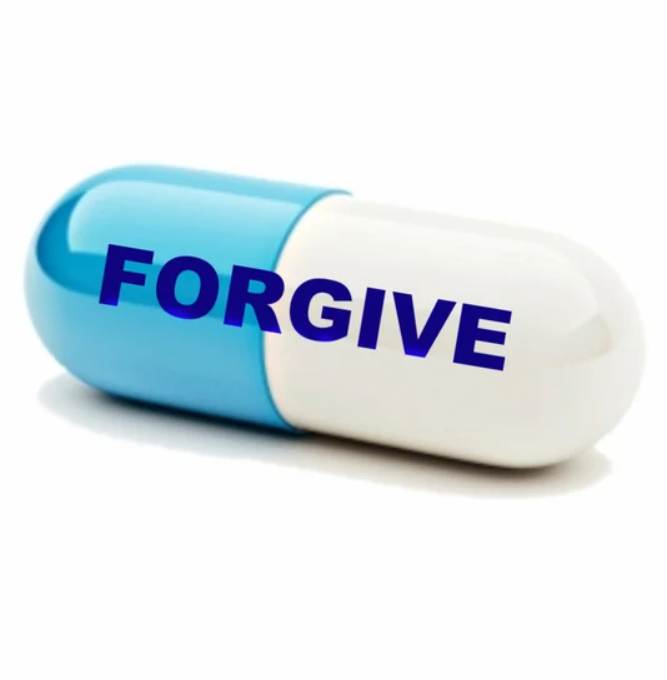Forget and you will forgive
“Holding back anger is like holding back a burning coal with the intent of throwing it at someone else; you’re the one who gets burned. ” Buddha
There is an ancient Japanese legend that tells of an old samurai, with the reputation of being unbeatable, even when he was challenged by other handsome samurai far younger than him. His defense technique was only one: impassivity. In practice, in the face of the most violent provocations he remained impassive, thus unleashing in the opponents an anger that could blind their action and make it less effective. Just enough to be able to beat them. It is said that one day the wise samurai was challenged by a swashbuckling warrior who had sowed terror in the area. But he too could do nothing in the face of the impassivity of the old samurai, so much so that he, humiliated, left the battlefield without even starting the fight. However, the apparently compliant attitude of the old samurai perplexed his young students, who would have expected a completely different reaction from their teacher. But the latter explained to them what, in my opinion, is the highlight of this story, namely that “if someone ‘brings you’ as a gift ‘unsolicited gifts such as anger and you are smart enough not to take it, this anger continues to belong only to him and not to you ”.
You could replace the word anger with other terms such as envy, resentment, anxiety, and many others, but the result would not change. The story of the samurai remains in my opinion emblematic of a fundamental principle, which is that it is not true that it is inevitable to get dirty when dealing with toxic relationships. For heaven’s sake, relationships are complicated to manage, often impossible to avoid; but the focus, as the above samurai teaches us, lies in the way we “respond” and not in the way we “react”. Be careful because the two terms may appear to be almost equivalent, but it is precisely in the slightest difference that the details nestle, because the reaction involves a greater involvement than a response. If a person on the street insults us we can react (and this involves a mix of words and actions) or just “respond”, using only our words, or even silence.
Toxic
When in the face of what I toxic, in the face of those who provoke us, in the face of even bad memories and ghosts of the past we can only give an answer, without necessarily reacting, then, automatically, we remove all power from these monsters. We just have to let go of them, regardless of whether this grip is fed by anger, resentment or, on the contrary, by some kind of bond that still binds us to them. Let go of them, ignore them, and they will cease to exist, even in our memories. Being less wise than the Japanese samurai I often think of another comparison, namely the one with the mosquito bite. Pay attention to it: if, once stung, you are there to rub on the bubble, you will only be crossed by a momentary feeling of well-being, but then the bubble will become even more inflamed, and its itching will also increase. If, on the other hand, you can resist those initial 10 minutes from the moment of the sting, without scratching yourself, the sting itself will boil, deflate, and the itch will disappear. It will perhaps be a less epic comparison of the samurai but I think it renders the idea well.
Easy?
Obviously you are wondering: “easy to say, but how do you get to the wisdom and impassivity of the Japanese samurai?”. The trick is to learn to respond in a “conscious” way to the provocations that come to us. What does it mean? Let’s start by saying that it is not an easy change but possible, even for the most instinctive. The first step is to understand with “extreme accuracy” (I repeat, extreme accuracy) what are the causes that make us lose control in the face of some provocations. And beware that I am only talking about a work of examination, or analysis, in which, pen and paper, if you want, you mark all those that you think are the reasons for your loss of control in the face of provocations. Pride? Do you want to slip out of the range of action of the provocative person? An attempt to sound angrier than him / her in a kind of competition as to who looks baddest? Each of you will find his reasons: write them down, without judging yourselves.
Now that you have put pen to paper what are the risk factors, those, to be clear, that make you lose your temper in the face of provocations, the second and last step is to work on your past through a single but complex action, i.e. leaving it behind you.
I don’t say forget because you never forget, but at least accept, embrace what has been, without fear, without shame. Why is this step important? Because it is in the past that the causes of certain losses of control are hidden. Let’s accept it, even when this appears to be full of errors. That’s how it went, we can’t change
